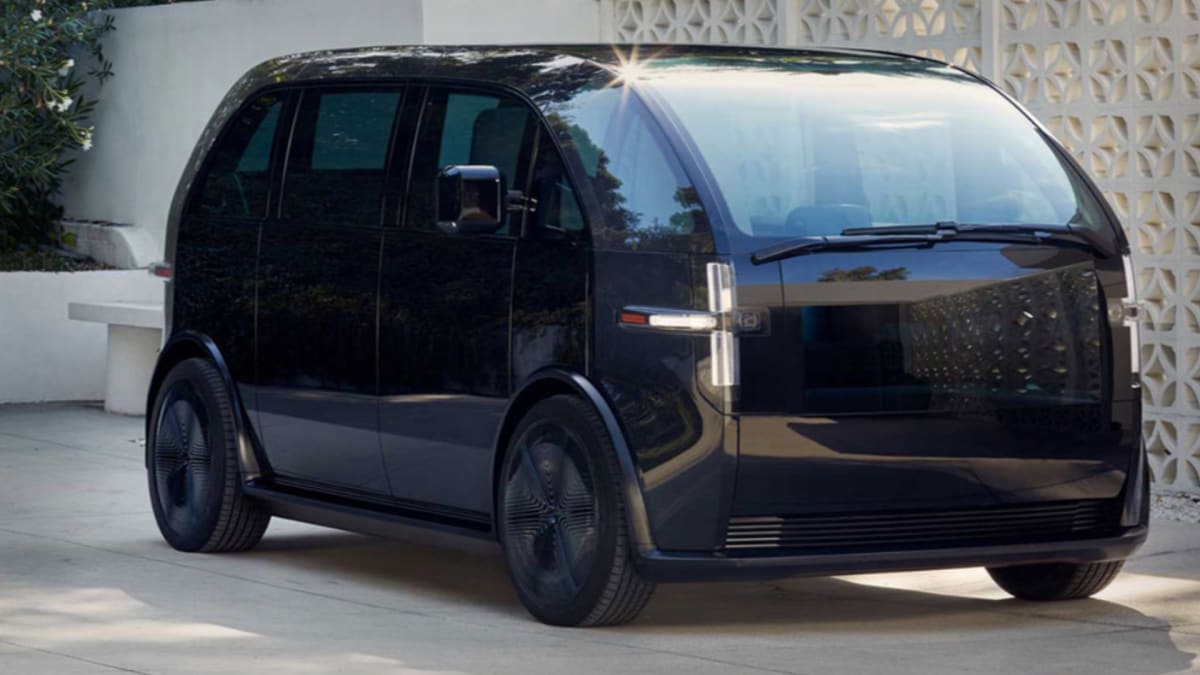
Canoo (GOEV), a young electric vehicle manufacturer, just made a big announcement to help pursue its efforts to supply delivery vehicles to Walmart and others.
The company, which began testing vehicles late last year with the retail giant, raised additional capital on Monday by selling new shares to institutional investors.
The new shares were sold to investors at a discount in a direct offering and will net Canoo $52.5 million. The names of the investors were not disclosed.
The startup, which was founded in 2017 and touts Walmart (WMT) as a customer, has burned through cash lately as it moves to ramp production.
Investors disliked the strategy to inject liquidty into the company since it dilutes the value of the holdings of current shareholders.
Canoo has struggled and its shares have fallen by 81.28% during the past year. On Monday the shares fell 12% following the announcement to $1.10 a share, near its 52-week low of $0.99.
The company said it would sell 50 million new shares along with warrants allowing investors to purchase another 50 million shares. The investors paid $1.05 a share. Each share includes a warrant that has an exercise price of $1.30 a share.
The new capital will lower the value held by existing shareholders even more.
The deal price is a substantial discount, as Canoo’s shares closed at $1.25 on Friday. For current shareholders, the deal also means significant dilution of their holdings, as it will add between 50 million and 100 million shares to the company’s current outstanding share count of 356 million.
The company said at the end of the third quarter that its cash level was only $6.8 million.
Last November Canoo said it needed additional capital and sought to raise money by issuing more shares.
Canoo said Monday that it would use the net proceeds of the offering for “general working capital purposes.” The company will report earnings later in February.
The company's losses have widened despite orders from companies such as Walmart. During third-quarter 2022, the company reported more than $2 billion in orders, a doubling from the second quarter, Chief Executive Tony Aquila said.
Canoo reported a GAAP net loss of $117.7 million for the three months ended Sept. 30, 2022, compared to a GAAP net loss of $80.9 million for the same quarter in 2021.
The company said in July that Walmart ordered 4,500 of its electric vans. The Bentonville, Ark., retail giant has an option for thousands more vans, as many as 10,000 units, according to Canoo.
"Walmart's massive store footprint provides a strategic advantage in today's growing 'Need it now' mindset and an unmatched opportunity for growing EV demand, especially at today's gas prices," said Aquila in a news release.
Canoo's EVs will deliver online orders, from groceries to general merchandise, and have the potential to be used for Walmart GoLocal, the retailer's delivery-as-a-service business, the firm said.
The company did not disclose the financial terms of the contract. It indicated that it would start manufacturing the vehicles at its Oklahoma plant and that the first deliveries were expected in 2023.
The EV maker is taking advantage of the competition between Walmart and Amazon (AMZN) to win consumers' hearts by delivering their groceries directly to their homes.
Among its panoply of e-commerce services, Walmart offers InHome, which delivers groceries directly to customers' fridges and freezers. To build InHome's prominence with consumers, Walmart needs to expand its fleet of electric vans.
In addition to Canoo, Walmart has also purchased electric vans from GM (GM) (5,000 in a deal with BrightDrop, GM's electric-van subsidiary) and 1,100 E-Transit vehicles from Ford Motor (F).
Canoo develops electric vehicles and one of its creations is the Lifestyle, an innovative minivan, the prototype of which was unveiled in 2019. Canoo's most popular vehicle, its multifunctionality and sleek and futuristic design drew a lot of attention.
The vehicle will be available in four configurations: basic, premium, adventure and delivery. The Lifestyle Delivery Vehicle lacks the rear bench seat to free up space. It'll thus be closer to a classic utility vehicle, with a more rectangular shape and without panoramic windows.
Make sense of the market. Get daily analysis of market conditions and economic trends from our portfolio managers.







